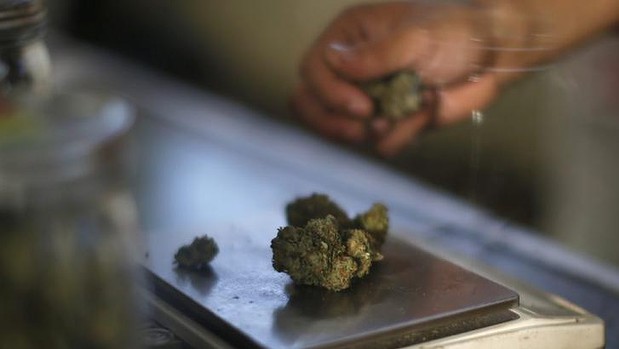
Experts, not politicians, should also be deciding whether and how cannabis is regulated as a medicine. Photo: Reuters
In the 1990s, a woman was admitted to St Vincent’s Hospital, Sydney, with cancer of the uterus. She was told that chemotherapy followed by a hysterectomy would give her an excellent chance of cure. Unfortunately, she developed severe nausea and vomiting after chemotherapy. As none of the conventional medications suppressed her distressing symptoms, she decided that the treatment was worse than the disease and stopped her chemotherapy. The patient’s nurses then contacted me. Cannabis was provided to the patient and stopped her vomiting. The patient then completed her chemotherapy and had a hysterectomy. Today she is alive and well and teaching.
Australians with distressing symptoms from serious conditions are still unable to legally try to alleviate their symptoms with medicinal cannabis. The conventional medicines for these conditions often work but they are sometimes ineffective or produce unacceptable side effects.
A large recent Reachtel poll showed that 66 per cent of Australians support and 14 per cent oppose medicinal cannabis. There are majorities of supporters of medicinal cannabis among voters for the major political parties (Liberal/National, ALP, Greens, PUP), men, women and the four major age groups. The ban on using medicinal cannabis does not have ‘the consent of the governed’ and hasn’t for a long time. Hence the civil disobedience supply of medicinal cannabis in many parts of the country.
Private Members Bills to allow medicinal cannabis have now been announced in three jurisdictions (NSW, House of Representatives, ACT Legislative Assembly) with a parliamentary inquiry scheduled in Tasmania and the leader of the Opposition in Western Australia declaring public support. The political battle is not over yet but politically we are somewhere between the end of the beginning and the beginning of the end.
